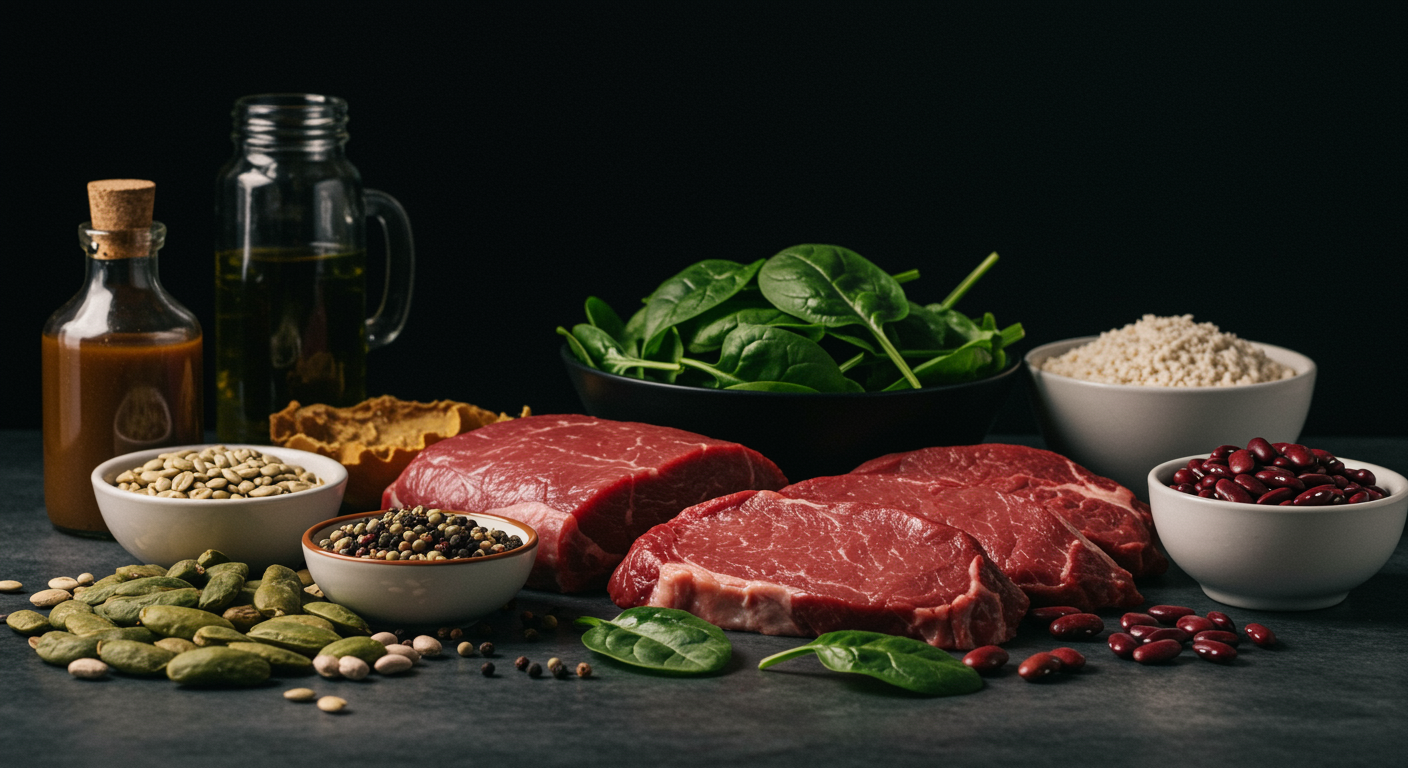Why Is Stomach Acid Essential for Iron Absorption?
Gastric acid plays a crucial role in iron absorption by converting dietary iron from the ferric (Fe3+) to the ferrous (Fe2+) form, which is the only form that can be absorbed by intestinal cells. This acid-dependent conversion is essential for absorbing iron from plant sources and iron-fortified foods, explaining why conditions that reduce gastric acid production can lead to iron deficiency despite adequate dietary intake.
Dr. Kumar’s Take
This research explains a fundamental aspect of nutrition that many people don’t realize - you need stomach acid to absorb iron properly. Without adequate acid, you can eat iron-rich foods all day and still become deficient. This is particularly important for understanding why people taking acid-suppressing medications like PPIs are at risk for iron deficiency. It also explains why iron supplements are often better absorbed on an empty stomach when acid production is higher, and why taking them with vitamin C (which provides additional acid) can help.
What the Research Shows
This foundational research examined the biochemical mechanisms by which gastric acid facilitates iron absorption from food sources. The study investigated the pH-dependent conversion of iron from its oxidized (ferric) to reduced (ferrous) state and the subsequent absorption processes in the small intestine.
The research demonstrated that gastric acid is not just helpful but essential for optimal iron absorption, particularly from non-heme iron sources that make up the majority of dietary iron intake in most populations.
How This Works (Biological Rationale)
Dietary iron exists primarily in the ferric (Fe3+) state, which cannot be directly absorbed by intestinal cells. Gastric acid creates an acidic environment (pH 1-2) that promotes the reduction of ferric iron to ferrous iron (Fe2+) through chemical reduction reactions.
The ferrous iron can then be transported across the intestinal epithelium via specific iron transporters (DMT1). Additionally, gastric acid helps release iron from food proteins and other binding compounds, making it available for this conversion process. Without adequate acid, iron remains in the non-absorbable ferric form.
Results in Real Numbers
- pH requirement: Iron absorption requires gastric pH <3.0 for optimal ferric to ferrous conversion
- Absorption efficiency: 80-90% reduction in iron absorption when gastric pH >4.0
- Non-heme iron dependence: 95% of dietary iron requires acid-dependent conversion for absorption
- Conversion rate: Ferric to ferrous conversion occurs within 15-30 minutes in normal gastric acid
- Clinical impact: 50-70% of iron deficiency cases associated with reduced gastric acid production
- Supplement effectiveness: Iron supplements 3-5 times more effective when taken with acidic conditions
Safety, Limits, and Caveats
The research focused on the biochemical mechanisms of iron absorption and may not fully address individual variations in gastric acid production, genetic factors affecting iron metabolism, or the complex interactions between iron and other nutrients. The studies also primarily examined non-heme iron absorption and may not fully represent heme iron absorption from meat sources.
Additionally, the research didn’t extensively examine compensatory mechanisms that might develop with chronic acid suppression or optimal strategies for maintaining iron status in acid-deficient states.
Practical Takeaways
- Understand that adequate stomach acid is essential for optimal iron absorption from most dietary sources
- Consider iron status monitoring in patients with conditions affecting gastric acid production
- Take iron supplements on an empty stomach when possible to maximize acid-dependent absorption
- Combine iron supplements with vitamin C or other acidic substances to enhance absorption
- Be aware that acid-suppressing medications can significantly impair iron absorption
- Recognize that iron deficiency may occur despite adequate dietary intake if gastric acid is insufficient
Related Studies and Research
- Use of Proton Pump Inhibitors and Risk of Iron Deficiency: Population-Based Study
- Physiology, Stomach
- Pharmacology of Proton Pump Inhibitors
- Proton Pump Inhibitors Interfere With Zinc Absorption and Zinc Body Stores
- Episode 25: The Great GERD Mistake - How Medicine Made Heartburn Worse and How to Fix It
FAQs
Can I absorb iron without stomach acid?
Some iron absorption can occur without acid (particularly heme iron from meat), but absorption of non-heme iron from plants and supplements is severely impaired without adequate gastric acid.
Why should iron supplements be taken on an empty stomach?
An empty stomach typically has higher acid levels, which enhances the conversion of iron to its absorbable form and improves overall absorption efficiency.
Does taking vitamin C with iron really help absorption?
Yes, vitamin C provides additional acidity and acts as a reducing agent, helping convert ferric iron to the absorbable ferrous form.
Can people taking acid-blocking medications still absorb iron?
Iron absorption is significantly impaired with acid suppression, though some absorption may still occur - these individuals often need higher doses or alternative iron formulations.
Are there iron supplements that don’t require stomach acid?
Some iron formulations (like iron bisglycinate) may be less dependent on gastric acid for absorption, though research on their effectiveness compared to traditional iron salts is ongoing.
Bottom Line
Gastric acid is essential for converting dietary iron to an absorbable form, making adequate stomach acid production crucial for preventing iron deficiency. Understanding this mechanism helps explain iron absorption issues in various clinical conditions and guides optimal supplementation strategies.


